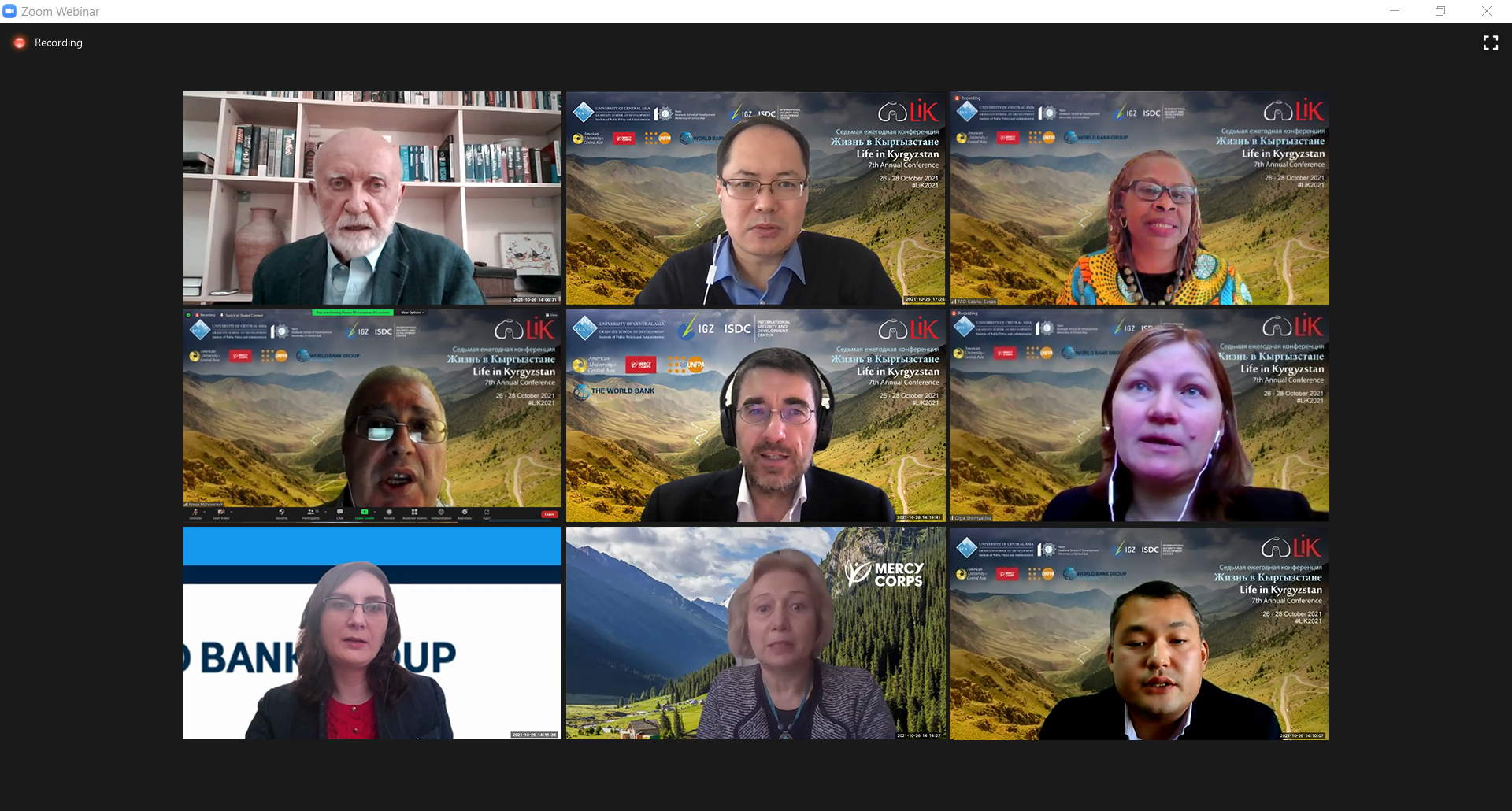
Life in Kyrgyzstan Conference Highlights 54% Drop in Neonatal Mortality
The Seventh Life in Kyrgyzstan (LiK) conference brought together over 100 participants from around the world to discuss recent socio-economic developments in Kyrgyzstan and Central Asia. The three-day conference was ogranised online from 26-28 October 2021 to share evidence-based results and contribute to an open access research database.
LiK is a multi-topic longitudinal survey of households and individuals. It has so far tracked data from 3,000 households and 8,000 individuals in all seven oblasts of Kyrgyzstan. Amongst various topics of discussions were many valuable findings of benefit to different sectors in Kyrgyzstan and Central Asia.
One of the keynote speakers was Dr Zulfiqar Bhutta from the Centre for Global Child Health, Canada and Aga Khan University, Pakistan, whose research on Newborn Health and Determinants in Kyrgyzstan: What Can Be Done? is based on the progress in newborn mortality reduction in the country. The findings suggest that though Kyrgyzstan’s maternal mortality ratio decreased by only 5% over last 25 years, neonatal mortality rate declined by 54% for the same period of time. The study provides practical recommendations for scaling up health gains in keeping with Sustainable Development Goals in Kyrgyzstan.
One of several research presenters from the University of Central Asia, Dr Erkin Isaev, shared his research on Drought Detection and Modeling in Kyrgyzstan. He said, “Drought is an integral part of climate variability which often damages the arid and semi-arid regions. At the moment, monitoring and forecasting droughts is not carried out here in Kyrgyzstan.” Thus, Isaev’s research proposes the possibility of using remote sensing and meteorological drought indices to observe and predict droughts over the complex geography of the country.
Lik Study covered a wide range of topics including migration in Kyrgyzstan, impact of Covid-19 on Kyrgyz women, education and child nutrition issues in the country, food insecurities, taxes and trade, typological characterization of livestock-based farming systems, and extreme weather coping strategies in rural Kyrgyzstan.
“The Purpose of the Conference is to connect experts who care deeply about human development and want to understand how people shape their lives and livelihoods. Whether you are a practitioner, policymaker, journalist or researcher, it doesn’t matter as long as you have the same interest in how people live, organize their lives, and care about their welfare,” said Professor Tilman Brück, Founder and Director of the International Security and Development Center, and Principal Investigator of LiK Study.
The Conference was organised by UCA’s Institute of Public Policy and Administration (IPPA), the Leibniz Institute of Vegetable and Ornamental Crops (IGZ), and ISDC - International Security and Development Center in partnership with the American University Central Asia, Mercy Corps, the World Bank, and United Nations Population Fund. Almost 13 presenters from the University of Central Asia participated in the Conference, of which five were UCA alumna and students from the School of Arts and Sciences.
Safdar Jan, a graduate from the Class of 2021, presented results from a quantitative study on the Impact of Remittances on Household Decisions to Engage in Tertiary Level Education in Kyrgyzstan. His findings concluded that remittance money is primarily used for short-term asset accumulation, rather than investing in education which benefits in long-term.
“Together with our partners from Germany, Prof. Dr Tilman Brück and Dr Damir Esenaliev, UCA’s Institute of Public Policy and Administration is one of the founders of Life in Kyrgyzstan panel household survey and the conference. IPPA serves as a local partner contributing to the design and implementation of the survey, and analysis of research data,” said Dr Roman Mogilevskii, Associate Director, IPPA at UCA.













